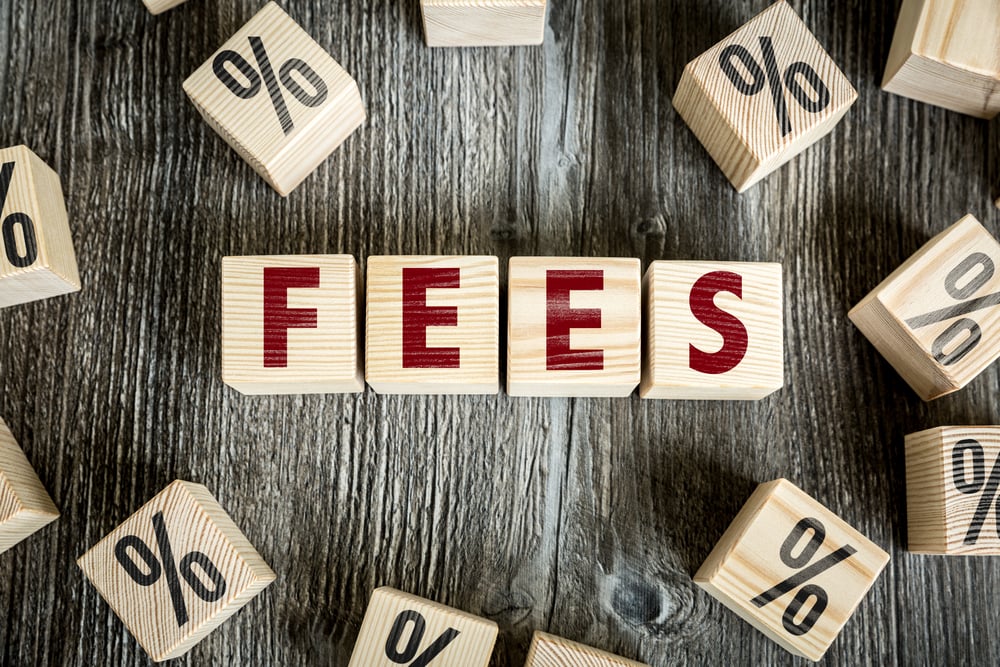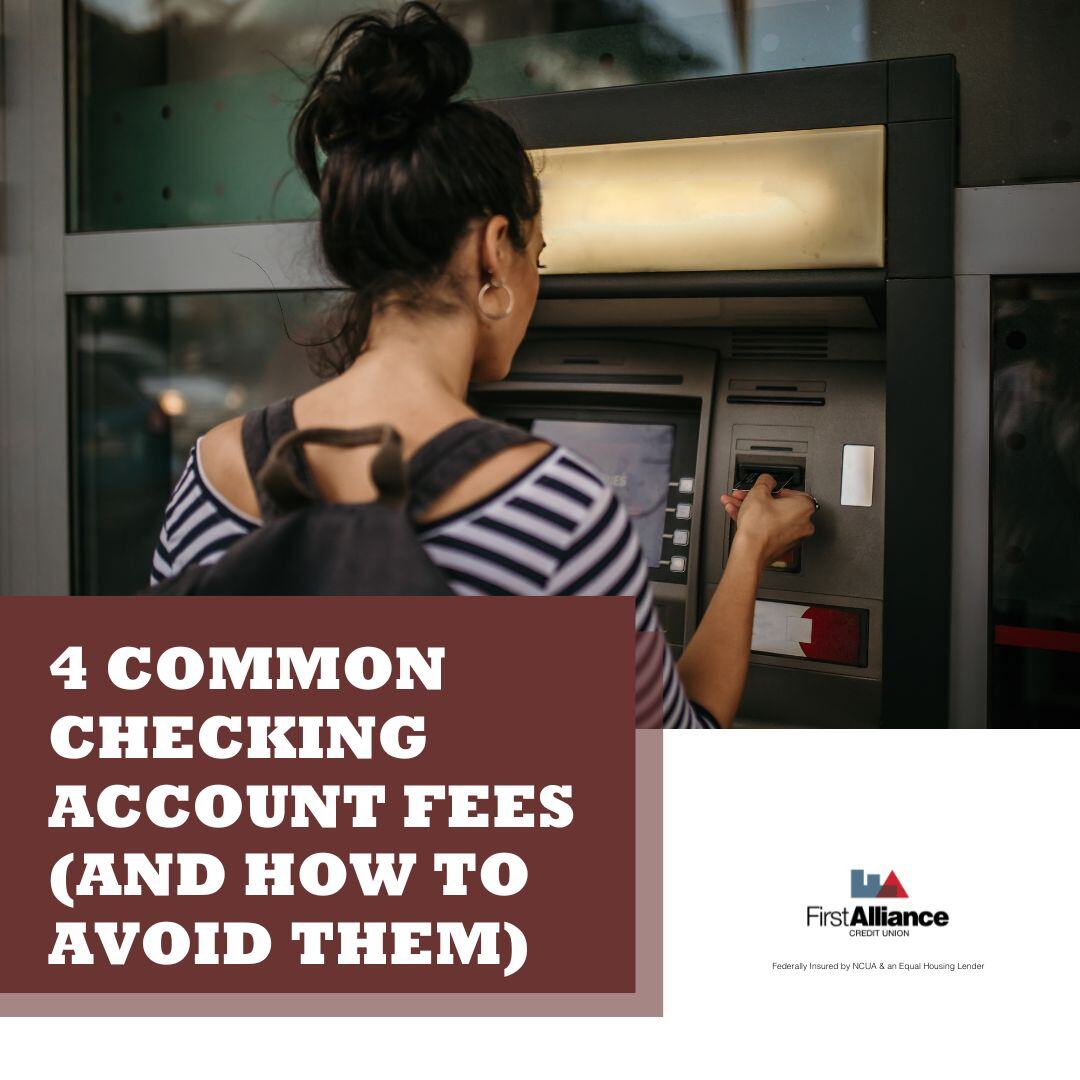4 Common Checking Account Fees (and how to Avoid Them)
Let’s be honest—while there are some checking account fees you want to avoid at all costs, such as a monthly fee, there are a lot of fees that are...

When we talk about steps you need to take to achieve financial success, we usually don’t talk about the importance of a checking account. That’s because they’re so common almost everyone with a bank account has one.
What many people don’t realize, though, is that most checking accounts have fees, and these fees vary from institution to institution. Knowing what these fees are and how to avoid them could save you hundreds of dollars a year.
This is the amount you’ll pay each month for simply having a checking account at some financial institutions. Most big banks charge this fee, and it’s around $10 to $12 each month.
If you’re not crazy about paying this fee, you’ll be happy to know that most banks offer some way to waive it if certain conditions are met, like maintaining a minimum balance in your checking account or making a certain number of transactions each month.
 You should know that most banks are aware that monthly checking account fees are very unpopular, and they’ve started to rebrand them as maintenance fees that you won’t have to pay unless you don’t meet certain conditions that are usually the same type of conditions that would let you avoid the monthly fee.
You should know that most banks are aware that monthly checking account fees are very unpopular, and they’ve started to rebrand them as maintenance fees that you won’t have to pay unless you don’t meet certain conditions that are usually the same type of conditions that would let you avoid the monthly fee.
This is the fee you’ll have to pay for certain types of transactions. The most common one you’ll encounter is at an ATM, where you might have to pay an extra $2-3 for the privilege of getting your money from one. Other types of transactions that might require a service fee are external account transfers, international wire transfers and foreign check processing.
The good news is that these transactions are all pretty specific, and financial institutions are usually pretty straightforward about the transaction fees they charge. However, you’ll want to read through the description of any transaction fees a financial institution charges to make sure there aren’t any hidden costs in the fine print, like getting hit with an out of network ATM fee from your financial institution in addition to paying a fee to the financial institution that owns the ATM.
These are the fees you’ll have to pay if you don’t have enough money in your checking account to cover a transaction. If your financial institution has to help you cover a transaction, they’ll charge you an overdraft fee. However, if your balance is already below zero and your financial institution won’t cover your transaction, you’ll be charged a nonsufficient funds fee.
 Either way, these fees are pretty steep. According to the Consumers Financial Protection Bureau, the median overdraft fee is $34. Even worse, if you overdraw your account and aren’t aware of it, you can get hit with another overdraft fee if you make another purchase, and leaves you open to another potential fee, the extended overdraft fee, if you don’t get your checking account up to a positive balance after a certain amount of time.
Either way, these fees are pretty steep. According to the Consumers Financial Protection Bureau, the median overdraft fee is $34. Even worse, if you overdraw your account and aren’t aware of it, you can get hit with another overdraft fee if you make another purchase, and leaves you open to another potential fee, the extended overdraft fee, if you don’t get your checking account up to a positive balance after a certain amount of time.
While it’s understandable that a financial institution would not want its account holders to spend money they don’t have, it’s also true that these fees can quickly spiral out of control and cost you hundreds of dollars in fees that you probably don’t have if you overdrew your account.
The only real way to avoid getting an overdraft fee is to monitor your checking account constantly using online banking or a mobile app and avoid making any purchases that might put you over your limit. You can also avoid overdrawing your account by setting up a budget and sticking to it.
A checking account just might be the most useful bank account you have. However, you should know what fees a financial institution might charge for using certain features of their checking account, as well as how to avoid incurring them.
Of course, if you really want to avoid being charged checking account fees, your best bet is to avoid for-profit financial institutions and get a checking account at a not-for-profit financial institution, like when you become a member of First Alliance Credit Union. We don’t charge fees for using our ATMs or Advisor Supported Kiosks, and we don’t charge a maintenance fee for our checking accounts.

Let’s be honest—while there are some checking account fees you want to avoid at all costs, such as a monthly fee, there are a lot of fees that are...

Overdraft fees are a pain. In our post last week we share some tips for how to avoid overdraft fees all together. But life, and your budget, doesn’t...

If you’ve been looking at opening up a new checking account, you might have heard that some financial institutions offer rewards checking accounts....